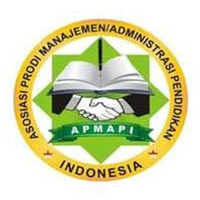Peran Kepemimpinan Digital Dalam Meningkatkan Kinerja Organisasi Pendidikan: Literature Review
Downloads
This study aims to analyze the role of digital leadership in improving the performance of educational organizations through a systematic literature review. The research method used a literature review approach with a focus on articles related to digital leadership and improving the performance of educational organizations. The literature search was conducted through the Scopus database using the Publish or Perish application with the keywords "organizational performance, digital leadership, and education" in the 2015-2024 publication range. Of the 22 articles found, 4 articles that met the inclusion criteria were selected for in-depth analysis. The results showed that digital leadership has a positive impact in facing operational challenges due to digitalization, encouraging innovation, and improving human resource management. Important aspects of digital leadership include visionary leadership, digital citizenship, digital-age learning culture, systemic improvement, and excellence in professional practice. However, several challenges were identified such as difficulties in nonverbal communication, limitations in digital feedback, and gaps in the application of emotional intelligence and knowledge sharing. To optimize digital leadership, the study recommends strengthening non-verbal communication through video media, employee self-leadership development, role change training, and building support mechanisms. In conclusion, digital leadership requires a comprehensive and structured approach to create an innovative and productive organizational environment in the digital age.
K. S. R. Warner and M. Wäger, "Building dynamic capabilities for digital transformation: An ongoing process of strategic renewal," Long Range Plann., vol. 52, no. 3, pp. 326–349, 2019, doi: 10.1016/j.lrp.2018.12.001.
D. E. Hanna, "Higher education in an era of digital competition: Emerging organizational models," Online Learn. J., vol. 2, no. 1, pp. 66–95, 2019, doi: 10.24059/OLJ.V2I1.1930.
H. W. Volberda, S. Khanagha, C. Baden-Fuller, O. R. Mihalache, and J. Birkinshaw, "Strategizing in a digital world: Overcoming cognitive barriers, reconfiguring routines and introducing new organizational forms," Long Range Plann., vol. 54, no. 5, p. 102110, 2021, doi: 10.1016/j.lrp.2021.102110.
Z. Wang, S. Lin, Y. Chen, O. Lyulyov, and T. Pimonenko, "Digitalization Effect on Business Performance: Role of Business Model Innovation," Sustain., vol. 15, no. 11, p. 9020, 2023, doi: 10.3390/su15119020.
M. Rachinger, R. Rauter, C. Mí¼ller, W. Vorraber, and E. Schirgi, "Digitalization and its influence on business model innovation," J. Manuf. Technol. Manag., vol. 30, no. 8, pp. 1143–1160, 2019, doi: 10.1108/JMTM-01-2018-0020.
M. M. Gobble, "Digitalization, digitization, and innovation," Res. Manag., vol. 61, no. 4, pp. 56–59, 2018.
G. Westerman, D. Bonnet, and A. McAfee, Leading digital: turning technology into business transformation, vol. 52, no. 06. Harvard Business Press, 2015. doi: 10.5860/choice.188022.
A. Westerman, G., Bonnet, D., & McAfee, "Leading digital: turning technology into business transformation," Choice Rev. Online, vol. 52, no. 06, pp. 52-3197-52–3197, 2015, doi: 10.5860/choice.188022.
N. Cavus and S. Aghamiri, "Conceptual Intelligence, Digital Transformation, and Leadership Skills: Key Concepts for Modern Business Success," in Studies in Computational Intelligence, vol. 1118, Springer, 2023, pp. 231–253. doi: 10.1007/978-3-031-44127-1_11.
C. S. Chee and Y. Salamzadeh, "The Impact of Digital Leadership Competencies on Virtual Team Effectiveness in MNC Companies in Penang, Malaysia," J. Entrep. Bus. Econ., vol. 8, no. 2, pp. 219–253, 2021, [Online]. Available: http://www.scientificia.com/index.php/JEBE/article/view/147
M. D. Jones, S. Hutcheson, and J. D. Camba, "Past, present, and future barriers to digital transformation in manufacturing: A review," J. Manuf. Syst., vol. 60, pp. 936–948, 2021, doi: 10.1016/j.jmsy.2021.03.006.
H. op ´t Roodt, E. M. Bracht, R. van Dick, and A. S. Hernandez Bark, "Navigating Through the Digital Workplace: Measuring Leader Digital Competence," J. Bus. Psychol., pp. 1–27, 2024, doi: 10.1007/s10869-024-09947-6.
S. Bresciani, A. Ferraris, M. Romano, and G. Santoro, "Digital leadership," in digital transformation management for agile organizations: a compass to sail the digital world, Emerald Publishing Limited, 2021, pp. 97–115. doi: 10.1108/978-1-80043-171-320211006.
M. Yang, M. Fu, and Z. Zhang, "The adoption of digital technologies in supply chains: Drivers, process and impact," Technol. Forecast. Soc. Change, vol. 169, p. 120795, 2021, doi: 10.1016/j.techfore.2021.120795.
A. Aryanto, Perilaku Konsumen di Era Digital - InfoBrand.id, no. January. Deepublish, 2022. [Online]. Available: https://infobrand.id/perilaku-konsumen-di-era-digital.phtml
A. Ediriweera and A. Wiewiora, "Barriers and enablers of technology adoption in the mining industry," Resour. Policy, vol. 73, p. 102188, 2021, doi: 10.1016/j.resourpol.2021.102188.
Y. H. Maturbongs, "Tantangan Era Globalisasi terhadap Manajemen Perguruan Tinggi," J. Adm. Dan Kesekretarisan, vol. 4, no. 2, pp. 122–141, 2019, doi: doi.org/10.36914/jak.v4i2.254.
G. C. Kane, A. Nguyen Phillips, J. R. Copulsky, and G. R. Andrus, The Technology Fallacy. 2019. doi: 10.7551/mitpress/11661.001.0001.
M. Malik, M. M. Raziq, N. Sarwar, and M. Gohar, "Navigating the change: a case study of the textile industry on digital leadership, digital transformation and innovative business models," Benchmarking, 2024, doi: 10.1108/BIJ-06-2023-0376.
I. Turyadi, Zulkifli, M. R. Tawil, H. Ali, and S. Abdurrahman, "The role of digital leadership in organizations to improve employee performance and business success," J. Ekon., vol. 12, no. 02, pp. 1671–1677, 2023.
T. P. laporan K. 2023 PUSDATIN, Pusat data dan teknologi informasi. Pusat Data dan Teknologi Informasi Kementerian Pendidikan, Kebudayaan, Riset, dan Teknologi, 2023.
Kementrian Pendidikan dan Kebudayaaan, "Mendikbudristek paparkan capaian kinerja program prioritas kemendikbudristek," Biro Kerja Sama dan Hubungan Masyarakat Kementrian Pendidikan, Kebudayaan, Riset dan Teknologi Republik Indonesia. [Online]. Available: https://www.kemdikbud.go.id/main/blog/2024/06/mendikbudristek-paparkan-capaian-kinerja-program-prioritas-kemendikbudristek-tahun-2023?utm_source=chatgpt.com
H. Rosmini et al., "Transformasi Kepemimpinan Kepala Sekolah pada Era Digital: Strategi Administrasi Pendidikan Berbasis Teknologi di Sekolah Menengah Pertama," Konstr. J. Pendidik. dan Pembelajaran, vol. 16, no. 1, pp. 165–180, 2024, doi: 10.35457/konstruk.v16i1.3451.
F. N. Arifa, "Digitalisasi Pendidikan: Capaian Dan Tantangan," Bid. Kesejaht. Rakyat Info Singk., vol. 17, no. 3, pp. 25–30, 2023, [Online]. Available: http://puslit.dpr.go.id
Indonesia.go.id, "Digitalisasi pendidikan percepat capaian merdeka belajar." [Online]. Available: https://indonesia.go.id/kategori/editorial/8293/digitalisasi-pendidikan-percepat-capaian-merdeka-belajar?lang=1&utm_source=chatgpt.com
O. A. E. Sawy, H. Amsinck, P. Krí¦mmergaard, and A. L. Vinther, "How LEGO built the foundations and enterprise capabilities for digital leadership," MIS Q. Exec., vol. 15, no. 2, pp. 141–166, Jan. 2016, doi: 10.4324/9780429286797-8.
S. Chatterjee, R. Chaudhuri, D. Vrontis, and G. Giovando, "Digital workplace and organization performance: Moderating role of digital leadership capability," J. Innov. Knowl., vol. 8, no. 1, p. 100334, 2023, doi: 10.1016/j.jik.2023.100334.
Z. Shao, X. Li, Y. Luo, and J. Benitez, "The differential impacts of top management support and transformational supervisory leadership on employees' digital performance," Eur. J. Inf. Syst., vol. 33, no. 3, pp. 334–360, 2024, doi: 10.1080/0960085X.2022.2147456.
T. J. J. Brunner, T. Schuster, and C. Lehmann, "Leadership's long arm: The positive influence of digital leadership on managing technology-driven change over a strengthened service innovation capacity," Front. Psychol., vol. 14, p. 988808, 2023, doi: 10.3389/fpsyg.2023.988808.
S. L. Zulu, A. M. Saad, S. O. Ajayi, M. Dulaimi, and M. Unuigbe, "Digital leadership enactment in the construction industry: barriers undermining effective transformation," Eng. Constr. Archit. Manag., 2023, doi: 10.1108/ECAM-05-2022-0491.
T. Wang, X. Lin, and F. Sheng, "Digital leadership and exploratory innovation: From the dual perspectives of strategic orientation and organizational culture," Front. Psychol., vol. 13, p. 902693, 2022, doi: 10.3389/fpsyg.2022.902693.
Accenture, "The Cyber-Resilient CEO How confident CEOs are taking charge," 2023.
Anna Katashvili, "The significance of digital leadership and mindset in driving digital transformation." [Online]. Available: https://www.act-global.com/en/georgia/insight/tsifruli-liderobisa-da-azrovnebis-roli-tsifrul-transformatsiashi
S. Anwar and U. N. Saraih, "Digital leadership in the digital era of education: enhancing knowledge sharing and emotional intelligence," Int. J. Educ. Manag., vol. 38, no. 6, pp. 1581–1611, Jan. 2024, doi: 10.1108/IJEM-11-2023-0540.
M. SaÄŸbaÅŸ and F. A. ErdoÄŸan, "Digital leadership: a systematic conceptual literature review," Ä°stanbul Kent íœniversitesi Ä°nsan ve Toplum Bilim. Derg., vol. 3, no. 1, pp. 17–35, 2022, [Online]. Available: https://dergipark.org.tr/tr/pub/itbfkent/issue/68585/1024253
R. Nuryadin, A. Sobandi, and B. Santoso, "Digital Leadership in the Public Sector-Systematic Literature Review: Systematic literature review," J. Ilmu Adm. Media Pengemb. Ilmu dan Prakt. Adm., vol. 20, no. 1, pp. 90–106, 2023, doi: 10.31113/jia.v20i1.934.
N. A. Musid, M. E. E. M. Matore, and A. H. A. Hamid, "Digital Leadership with The Constructs Diversity: A Systematic Literature Review," Math. Stat. Eng. Appl., vol. 71, no. 4, pp. 2182–2202, 2022, doi: doi.org/10.17762/msea.v71i4.768.
E. Weber, M. Bí¼ttgen, and S. Bartsch, "How to take employees on the digital transformation journey: An experimental study on complementary leadership behaviors in managing organizational change," J. Bus. Res., vol. 143, pp. 225–238, 2022, doi: 10.1016/j.jbusres.2022.01.036.
P. S. Aithal and A. K. Maiya, "Innovations in Higher Education Industry–Shaping the Future," Int. J. Case Stud. Business, IT, Educ., vol. 7, no. 4, pp. 283–311, 2023, [Online]. Available: https://papers.ssrn.com/sol3/papers.cfm?abstract_id=4674658
E. W. Eisner, "Multiple Intelligences: Its Tensions and Possibilities," Teach. Coll. Rec., vol. 106, no. 1, pp. 31–39, 2004, doi: 10.1111/j.1467-9620.2004.00315.x.
C. Audrin and B. Audrin, "More than just emotional intelligence online: introducing "˜digital emotional intelligence,'" Front. Psychol., vol. 14, p. 1154355, 2023, doi: 10.3389/fpsyg.2023.1154355.
L. W. Cowe, "The Concept of the Theory of Multiple Intelligences and an The Concept of the Theory of Multiple Intelligences and an Interdisciplinary, Arts Inclusive Curriculum: A Model for Teaching Interdisciplinary, Arts Inclusive Curriculum: A Model for Teaching Whose Time Has Come Whose Time Has Come," 1993, [Online]. Available: https://scholarworks.wmich.edu/masters_theseshttps://scholarworks.wmich.edu/masters_theses/3309
H. Gardner, The disciplined mind: what all students should understand, vol. 37, no. 10. Simon & Schuster, 2000. doi: 10.5860/choice.37-5803.
Eka Mariana, "Konsep Multiple Intelligences Howard Gardner Dalam Pendidikan Anak Usia Dini. (Skripsi).," 2018, Iain Bengkulu.
P. MINASADIYAH, R. Y. Widiastuti, M. R. Tyas, J. Masruroh, and V. T. Maghfirah, "Kegiatan-Kegiatan Stimulasi Multiple Intelligence Pada Anak Usia Dini," J. Buah Hati, vol. 10, no. 1, pp. 40–52, 2023, doi: 10.46244/buahhati.v10i1.2045.
F. N. Memon and S. N. Memon, "Digital Divide and Equity in Education: Bridging Gaps to Ensure Inclusive Learning," in Impact of Digitalization on Education and Social Sustainability, IGI Global, 2025, pp. 107–130.
A. Mohanty, B. Keswani, S. K. Mohanty, A. G. Mohapatra, S. Nayak, and M. M. Akhtar, "Synergizing Knowledge Management in the Era of Industry 4.0: A Technological Revolution for Organizational Excellence," Knowl. Manag. Ind. Revolut. 4.0, pp. 39–85, 2024, doi: 10.1002/9781394242641.ch3.
N. A. N. Ibrahim et al., "The Importance of Non-Verbal Communication in Organizations," Int. J. Acad. Res. Bus. Soc. Sci., vol. 12, no. 6, Jun. 2022, doi: 10.6007/ijarbss/v12-i6/13901.
G. L. Stewart, S. H. Courtright, and C. C. Manz, "Self-Leadership: A Paradoxical Core of Organizational Behavior," Annu. Rev. Organ. Psychol. Organ. Behav., vol. 6, pp. 47–67, Jan. 2019, doi: 10.1146/annurev-orgpsych-012218-015130.
Revenio Jaiagat, "The Impact of Change and Change Management in Achieving Corporate Goals and Objectives: Organizational Perspective," Int. J. Sci. Res., vol. 14, no. 7, pp. 26–35, Nov. 2016.
Authors who publish with this journal agree to the following terms:
- The copyright of the accepted for publication articles shall be assigned to Jurnal Manajemen Pendidikan (JuMP) as the publisher of the journal. The intended copyright includes the rights to publish articles in various forms (including reprints).
- Jurnal Manajemen Pendidikan (JuMP) maintain the publishing rights of the published articles.
- Authors are permitted to republish or disseminate published articles by sharing the link/DOI of the article at Jurnal Manajemen Pendidikan (JuMP). Authors are allowed to use their articles for any legal purposes deemed necessary without written permission from Jurnal Manajemen Pendidikan (JuMP) with an acknowledgment of initial publication to this journal.













